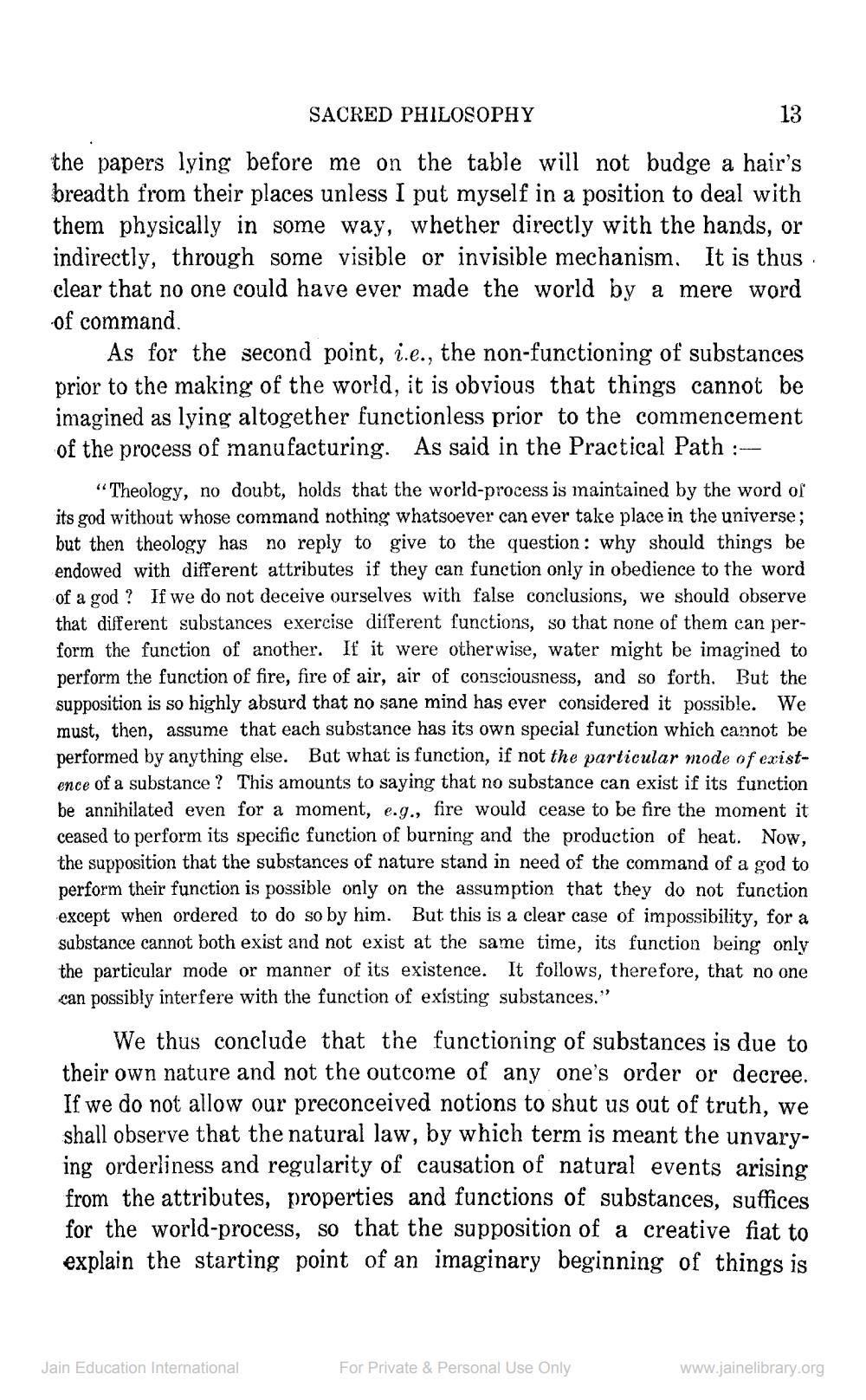________________
SACRED PHILOSOPHY
13
the papers lying before me on the table will not budge a hair's breadth from their places unless I put myself in a position to deal with them physically in some way, whether directly with the hands, or indirectly, through some visible or invisible mechanism. It is thus clear that no one could have ever made the world by a mere word of command.
As for the second point, i.e., the non-functioning of substances prior to the making of the world, it is obvious that things cannot be imagined as lying altogether functionless prior to the commencement of the process of manufacturing. As said in the Practical Path :
"Theology, no doubt, holds that the world-process is maintained by the word of its god without whose command nothing whatsoever can ever take place in the universe; but then theology has no reply to give to the question: why should things be endowed with different attributes if they can function only in obedience to the word of a god? If we do not deceive ourselves with false conclusions, we should observe that different substances exercise different functions, so that none of them can perform the function of another. If it were otherwise, water might be imagined to perform the function of fire, fire of air, air of consciousness, and so forth. But the supposition is so highly absurd that no sane mind has ever considered it possible. We must, then, assume that each substance has its own special function which cannot be performed by anything else. But what is function, if not the particular mode of existence of a substance? This amounts to saying that no substance can exist if its function be annihilated even for a moment, e.g., fire would cease to be fire the moment it ceased to perform its specific function of burning and the production of heat. Now, the supposition that the substances of nature stand in need of the command of a god to perform their function is possible only on the assumption that they do not function except when ordered to do so by him. But this is a clear case of impossibility, for a substance cannot both exist and not exist at the same time, its function being only the particular mode or manner of its existence. It follows, therefore, that no one can possibly interfere with the function of existing substances."
We thus conclude that the functioning of substances is due to their own nature and not the outcome of any one's order or decree. If we do not allow our preconceived notions to shut us out of truth, we shall observe that the natural law, by which term is meant the unvarying orderliness and regularity of causation of natural events arising from the attributes, properties and functions of substances, suffices for the world-process, so that the supposition of a creative fiat to explain the starting point of an imaginary beginning of things is
Jain Education International
For Private & Personal Use Only
www.jainelibrary.org




